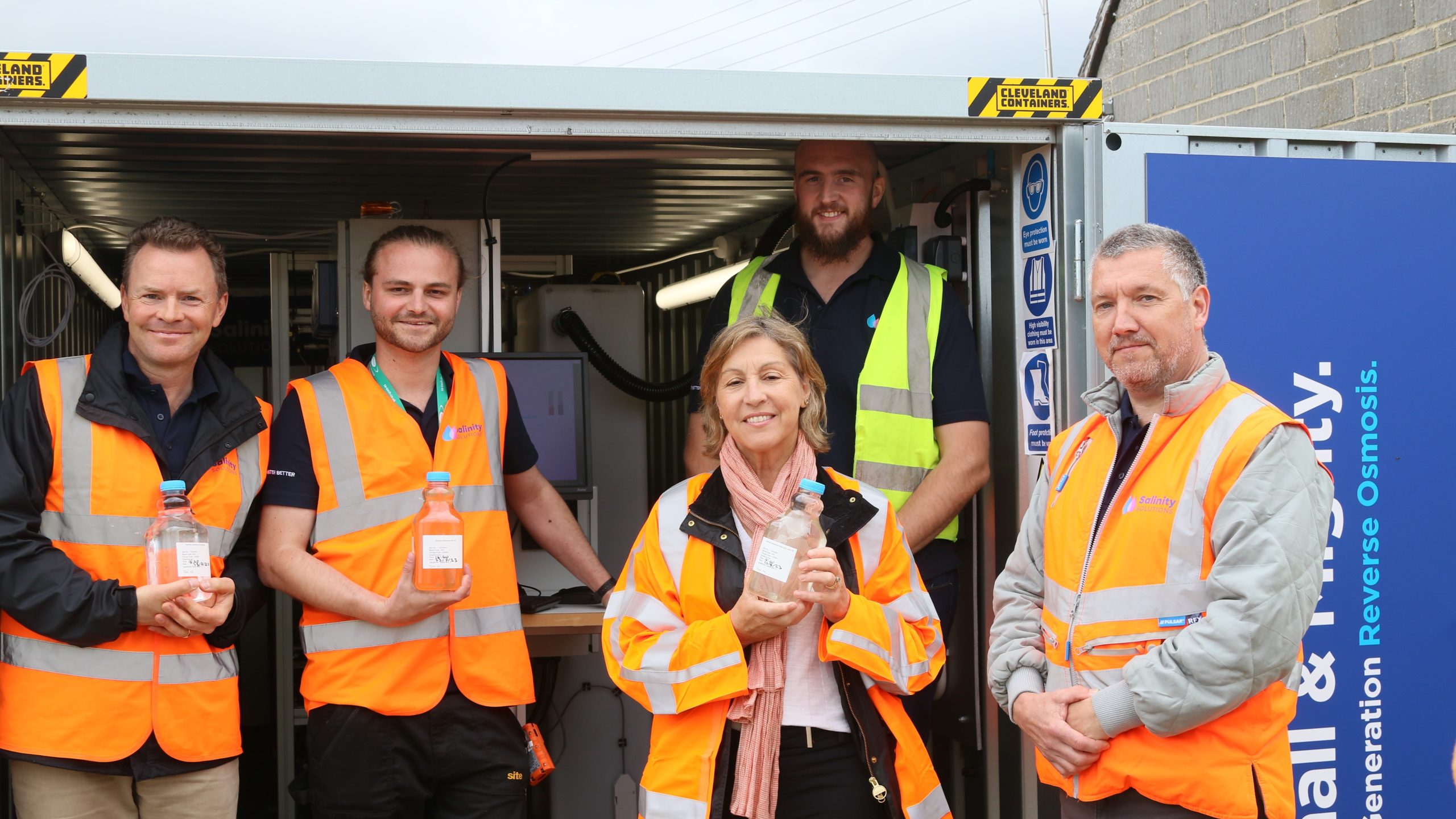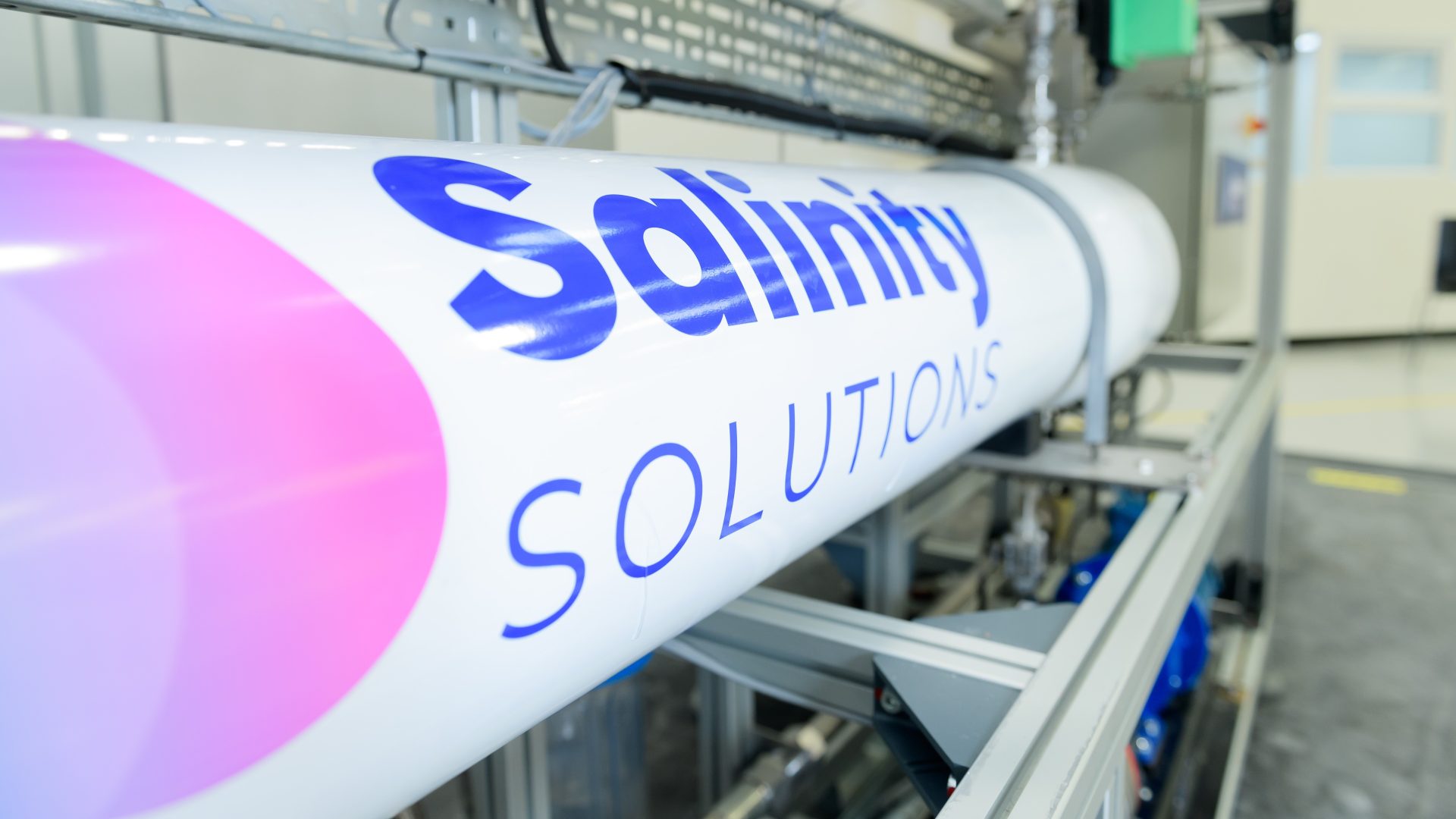Somerset Council is hoping to secure Government funding to deliver phosphate mitigation measures which will unlock the delivery of 18,000 new homes across the area and provide for longer term nature recovery.
The Council working in partnership with the Farming and Wildlife Advisory Group (FWAG), Plymouth University, Salinity Solutions, and Dorset Council, has submitted a bid for £10.5m to the Government’s Nutrient Mitigation Fund.
The funding would be used to expand the Council’s existing phosphate credit scheme and deliver both interim and long-term phosphate mitigation measures including the installation of modular units to provide a secondary treatment process at wastewater treatment works in the catchment area.
The new energy efficient water processing technology, developed by Salinity Solutions, has the potential to assist all the nutrient neutrality catchment areas by providing cost effective bridging measures to 2030 – meeting the Governments Technically Achievable Limit (TAL) proposed under the Levelling and Regeneration Bill. It would also work alongside the delivery of nature-based solutions for nutrient neutrality, which take longer to establish.
Salinity Solutions and Wessex Water have delivered a no-cost trial for Somerset Council to demonstrate the efficacy of their modular water treatment units for phosphate mitigation. A unit has been in place at the Fivehead Wastewater Treatment Works near Taunton for two weeks allowing independent water sampling to be undertaken. Early indications show promising results with the first verified laboratory results showing over 98% of phosphates and 88% of nitrates removed.

Cllr Ros Wyke, Lead Member for Economic Development, Planning, and Assets, said:
“We need to unlock development in the short term in a way that is aligned with longer-term nature recovery of our waterways. Our bid will ensure we can deliver nature based and innovative technical solutions enabling our developers, from small local firms to the national players, to build the houses we need along with supporting development and growth in our local economy.
“The Salinity Solutions product can deliver sufficient nutrient credits to 2030 to help unlock all the housing units caught up in Somerset. The early trial results are excellent, exceeding our expectations and we call on the Government to confirm our £10.5m bid to the Nutrient Mitigation Fund so we can progress without further delay.”
Tim Naughton, Salinity Solution’s CTO and founder, said:
“Somerset Council and Wessex Water have given us a great opportunity to demonstrate our technology as an effective phosphate and nitrate removal solution. The unit was up and running within a day and we’re very pleased with the initial results, which indicate that it’s highly effective. The system uses 50% less energy than comparable alternatives, which is an important advantage when considering a multi-year installation.”
Taunton Deane MP Rebecca Pow visited the Fivehead site to see the trial at first hand this week, saying:
“I was pleased to visit to observe the Salinity Solutions water treatment trial in conjunction with Wessex Water and Somerset Council to remove phosphates and nitrates using 50% less energy which if successful could help unlock the backlog of housing applications in Somerset.”
Somerset Council is building on the work begun by the former Somerset County Council and the four district councils (Somerset West and Taunton, Mendip, South Somerset, and Sedgemoor) which had been working together to minimise delay and uncertainty around planning applications since receiving advice from Natural England about the requirement to mitigate against high levels of phosphates in the Somerset Levels and Moors Ramsar Site in 2020, and the River Axe SAC in 2022.
Natural England advised that in light of a court judgment known as Dutch N, it was necessary to demonstrate that all proposed developments will be phosphate neutral before determining a planning application that may give rise to additional phosphates within the affected river catchment areas. Excessive phosphorus concentrations are creating algae blooms which are adversely affecting bio diversity on the internationally protected Somerset Levels and Moors.
The Councils developed a county-wide nutrient strategy, created one of the first Local Authority led phosphate credits schemes in England, produced guidance for developers, and developed a bespoke phosphate calculator to enable applicants to calculate their phosphate load.
They also began lobbying the Government for funding, support to find a national solution to the nutrient issue, and a commitment that relevant Government regulators (OFWAT, Environment Agency and Natural England) would be addressing the major contributory polluters responsible for the discharge of nutrients into the water courses that feed into the protected sites.
Cllr Wyke was invited to Downing Street with other local authority members to further discuss the issue of nutrient neutrality that affects 74 local authorities across the country where she called on the Government to fund Somerset Council’s partnership bid for money from the Nutrient Mitigation Fund.




